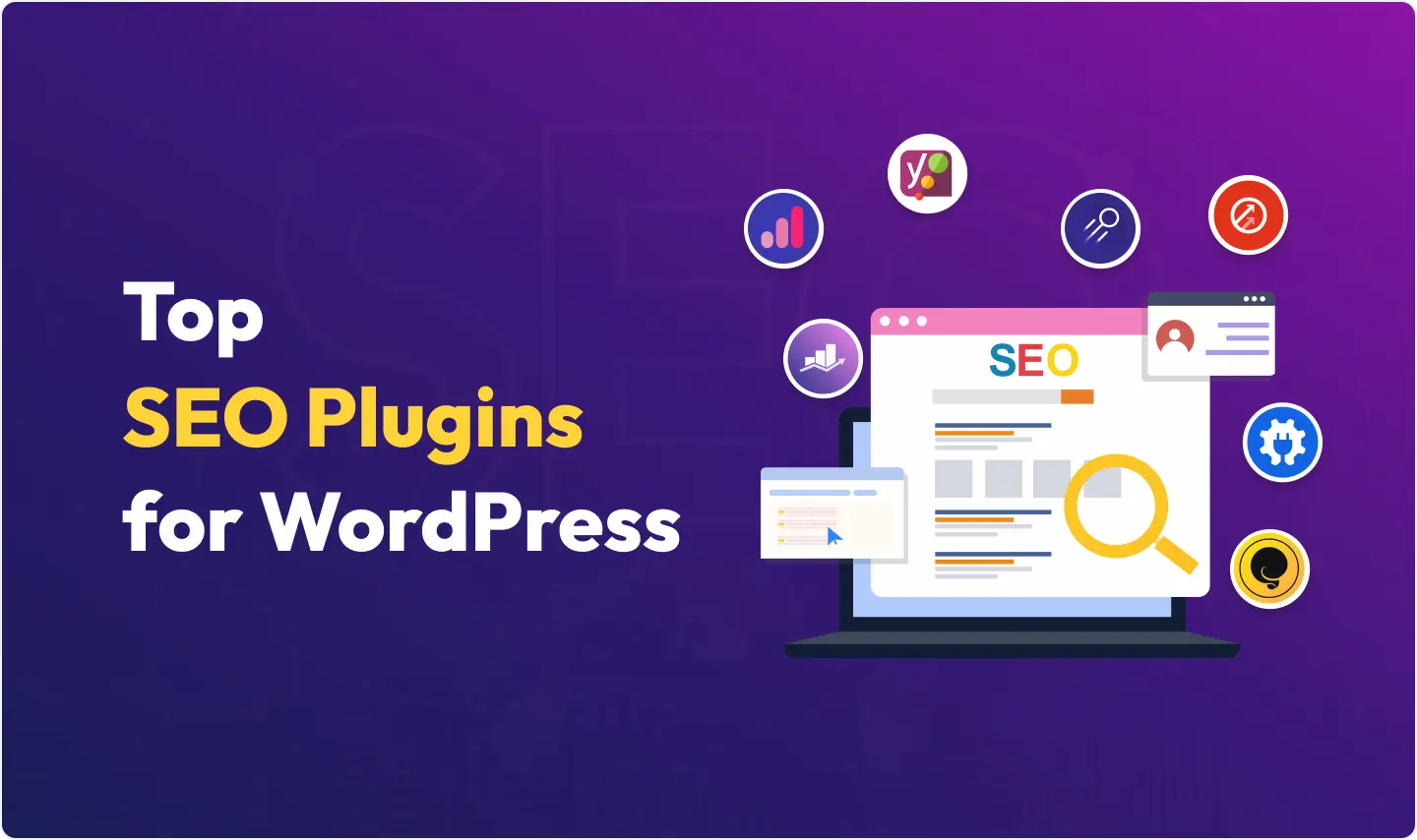Let’s be honest, starting a WordPress blog is easy, but getting people to actually find it on Google? That’s a whole different story. I remember publishing my first blog post, eagerly checking Google the next day… and the next… and the next. Nothing. Not even on the 10th page. That’s when I discovered the magic of the best SEO plugin for WordPress. These tools don’t just optimize your site—they help Google understand what your blog is about.
If you’re just stepping into the world of blogging, the right SEO plugin can save you hours of guesswork and give your content the visibility it deserves.
In this guide, we’ll explore the best WordPress SEO plugins, their key features, and real-world examples to help you choose the right one. Whether you’re a beginner blogger or a seasoned marketer, these tools will give your site the edge it needs.
What Are SEO Plugins and Why Do They Matter?
SEO plugins simplify technical optimizations like
- Meta tags & schema markup
- XML sitemap generation
- Keyword optimization & readability checks
- Internal linking suggestions
Think of them as personal SEO assistants built into your WordPress dashboard. Without them, you’re flying blind in a competitive search engine landscape.
💡Fun fact: Over 43% of the web is built on WordPress, and almost every successful site uses an SEO plugin. (source)
Top SEO Plugins for WordPress
Here’s a breakdown of the best options, based on ease of use, features, and real user reviews.
|
Plugin |
Best For |
Key Features |
|
Yoast SEO |
Beginners & pros |
Readability analysis, schema markup, internal linking |
|
Rank Math |
Advanced users | AI-powered suggestions, keyword ranking tracker |
|
All in One SEO (AIOSEO) |
Ease of use |
Automatic optimizations, WooCommerce support |
|
SEOPress |
Customization |
White-label options, Google News sitemaps |
|
The SEO Framework |
Speed & simplicity |
Lightweight, no bloat, automatic fixes |
Let’s dive deeper into each.
1. Yoast SEO
Best for: Beginners who want a guided, all-in-one SEO toolkit.
Why I love it: Yoast SEO literally tells you what to fix, like a grammar checker, but for SEO.
Key Features:
- Real-time SEO content analysis
- Readability checker
- XML sitemap generation
- Control over breadcrumbs and meta tags
|
Pros |
Cons |
|
Easy-to-understand traffic light system |
The free version only allows one keyword |
|
Excellent documentation & tutorials |
Some features are locked behind a paywall |
|
Real-time content and readability analysis |
Can slow down the dashboard on large sites |
|
Trusted by over 5M websites |
The interface can feel a bit overwhelming |
💡As of April 2025, Yoast SEO has over 10 million active installations. (Source)
2. Rank Math
Best for: Bloggers who want more features for free.
Why it stands out: It’s like Yoast on steroids — but lighter and faster.
Key Features:
- Unlimited keyword optimization (even in the free plan)
- Built-in schema markup
- Advanced analytics integration with Google Search Console
|
Pros |
Cons |
|
Unlimited keyword optimization (even free) |
Slight learning curve for total beginners |
|
Built-in schema and analytics integration |
Too many features can feel overwhelming |
|
Clean, modern user interface |
Some advanced settings need tweaking |
|
Fast and lightweight plugin |
Relatively newer compared to Yoast |
💡As of 2024, Rank Math powers over 2 million sites and is gaining serious traction.
3. All in One SEO (AIOSEO)
Best for: Bloggers who need eCommerce SEO and WooCommerce integration.
Why it’s solid: It’s been around for a long time and keeps evolving with WordPress.
Key Features:
- Smart SEO setup wizard
- On-page analysis and TruSEO score
- WooCommerce SEO tools
|
Pros |
Cons |
|
Great for WooCommerce SEO |
Premium features require an upgrade |
|
Easy setup wizard and TruSEO score |
UI feels slightly cluttered |
|
Supports local SEO, social previews |
Not as beginner-friendly as Yoast |
|
Backed by a reliable plugin team (WPForms) |
Fewer keyword tools in the free version |
💡AIOSEO has over 3 million active installations and is backed by the same team behind WPForms. (source)
4. SEOPress
Best for: Bloggers who want full control and white-label branding.
Why it’s different: Affordable premium option with powerful tools.
Key Features:
- Google Analytics and Matomo integration
- Schema types support
- Content analysis and redirection manager
|
Pros |
Cons |
|
No ads or branding, even in free version |
Limited beginner-level tutorials |
|
Affordable premium version |
Smaller community support |
|
Strong WooCommerce and schema support |
UI may feel technical for some users |
|
GDPR-compliant and privacy-focused |
Lacks some integrations (e.g., GSC graphs) |
💡SEOPress is GDPR-compliant and used by more than 250,000 websites.
5. The SEO Framework
Best for: Bloggers who want a lightweight, privacy-focused plugin with minimal setup.
Why it’s worth a look: Unlike other plugins that throw in tons of features and upsells, The SEO Framework is clean, fast, and doesn’t nag you to upgrade. It’s perfect for those who want something that “just works.”
Key Features:
- Preconfigured SEO settings that work out of the box
- Local SEO and breadcrumbs
- Supports AMP and custom post types
- Built-in AI to generate SEO meta tags
|
Pros |
Cons |
|
Fast, lightweight, and ad-free |
The interface isn’t as beginner-friendly |
|
Excellent for privacy (GDPR-compliant) |
Lacks built-in keyword optimization |
|
Smart automation with minimal setup |
Limited help guides and support |
|
Ideal for speed-focused or minimalist blogs |
Fewer integrations compared to others |
💡 A small team develops the SEO Framework focused on ethical SEO, and over 100,000 active sites use it. (source)
Comparison Table
|
Plugin |
Free Version | Keyword Focus | Schema Markup | WooCommerce SEO |
Best For |
|
Yoast SEO |
✅ Yes | ✅ 1 keyword | ✅ Yes | 🚫 Limited |
Beginners |
|
Rank Math |
✅ Yes | ✅ Unlimited | ✅ Yes | ✅ Full Support |
Feature Lovers |
|
AIOSEO |
✅ Yes | ✅ 1 keyword | ✅ Yes | ✅ Full Support |
eCommerce Bloggers |
|
SEOPress |
✅ Yes | ✅ Yes | ✅ Yes | ✅ Yes |
Custom Setup Fans |
|
The SEO Framework |
✅ Yes | 🚫 Not included | ✅ Basic | 🚫 Limited |
Speed + Privacy Lovers |
My Take: Which SEO Plugin Should You Choose?
Honestly, there’s no one-size-fits-all when it comes to the best SEO plugin for WordPress; it depends on your blogging style, technical comfort, and goals.
- If you’re a beginner who wants simple guidance and solid SEO basics, I’d say start with Yoast SEO. It’s familiar, user-friendly, and gets the job done without much fuss.
- If you’re more advanced or want extra features for free, Rank Math is a powerhouse. I love how clean the dashboard is, and you get a lot without paying a dime.
- Running an online store or WooCommerce site? All in One SEO (AIOSEO) is built with that in mind — especially helpful for local SEO or eCommerce products.
- If you’re someone who wants control and flexibility (like custom post types, schemas, or no ads in the backend), SEOPress is seriously underrated.
- And if your focus is speed, privacy, and minimalism, the SEO Framework is a hidden gem. It’s perfect for bloggers who want something smart, fast, and non-intrusive — no upsells, no clutter, just pure functionality.
Personally, I’ve tested all five on different sites, and I often use Rank Math or The SEO Framework, depending on the project. Rank Math is like the all-you-can-eat buffet, while The SEO Framework is that quiet, high-quality café only a few people know about.
Final Thoughts
SEO is not just about stuffing keywords or writing “perfect” blog posts. Structuring content for both search engines and human readers can feel overwhelming, especially when you’re just starting. However, the right WordPress SEO plugin simplifies this process. What might take hours of manual optimization can often be automated with just a few clicks.
So here’s your action step: Pick one plugin from this list, install it on your WordPress site, and start optimizing your next blog post. Don’t try to be perfect—just start somewhere.
Need help setting one up? I’ve written a detailed guide on how to install a WordPress plugin.


